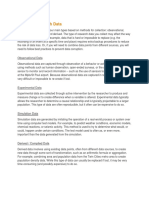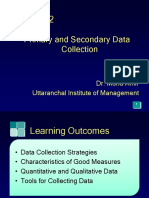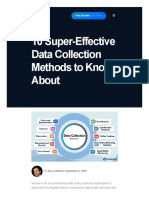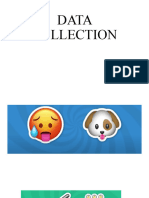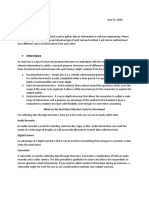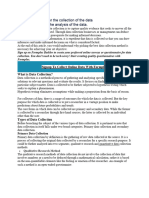0% found this document useful (0 votes)
17 views8 pagesData Collection Tools A Comprehensive Overview
Data collection tools are essential for gathering information to support research and business decisions. The document outlines various types of tools, including interviews, focus groups, document analysis, and existing data, emphasizing the importance of selecting the right tool based on research objectives. Effective data collection leads to valid findings and better insights for improved outcomes.
Uploaded by
GLENN (BATACAN) POSUGACCopyright
© © All Rights Reserved
We take content rights seriously. If you suspect this is your content, claim it here.
Available Formats
Download as PPTX, PDF, TXT or read online on Scribd
0% found this document useful (0 votes)
17 views8 pagesData Collection Tools A Comprehensive Overview
Data collection tools are essential for gathering information to support research and business decisions. The document outlines various types of tools, including interviews, focus groups, document analysis, and existing data, emphasizing the importance of selecting the right tool based on research objectives. Effective data collection leads to valid findings and better insights for improved outcomes.
Uploaded by
GLENN (BATACAN) POSUGACCopyright
© © All Rights Reserved
We take content rights seriously. If you suspect this is your content, claim it here.
Available Formats
Download as PPTX, PDF, TXT or read online on Scribd
/ 8


